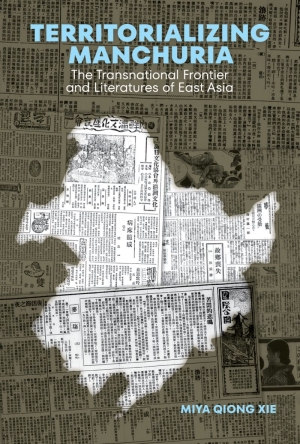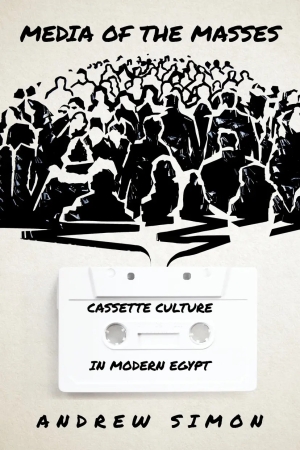
Miya Xie and Andrew Simon
Professor Miya Xie and senior lecturer Andrew Simon received prestigious awards for their recent books.
Miya Xie, associate professor of Chinese and comparative East Asian literature, and Andrew Simon, senior lecturer of Middle Eastern studies, received awards from the Modern Language Association of America for their recent books.
The two scholars will receive their awards at the MLA's annual convention in New Orleans on Jan. 10. Their prizes are among 23 annual publication awards whose recipients are chosen by esteemed scholars from across the United States.
"I am thrilled that the MLA is recognizing Andrew and Miya for their outstanding and boundary-pushing scholarship," says history professor Matthew Delmont, associate dean of international and interdisciplinary studies. "Their influential research stands out for its breadth and depth, inspiring Dartmouth faculty and students alike."
A new literary history of East Asia
Xie received the MLA's First Book Prize for Territorializing Manchuria: The Transnational Frontier and Literatures of East Asia, which was published by the Harvard University Asia Center.

Established in 1993, the First Book Prize honors a first book-length publication of a member of the association that is a literary or linguistic study, a critical edition of an important work, or a critical biography.
In Territorializing Manchuria, Xie examines iconic 20th-century literary figures from China, Korea, Japan, and Taiwan and reveals how they devised novel literary techniques to cross national boundaries—uncovering a history of literary "co-formation" in a region of historic divisions.
"My research unfolded a new literary history," Xie says. "At one time, writers from all over East Asia were going to China's Northeast, or writing about it, or both. This was because the land was once a contested frontier where Chinese—of different ethnicities including the Han, the Manchu, the Mongols, and so on—Japanese, Korean, and Russian peoples all wanted to carve out a space of belonging, as their states were competing for sovereignty in that territory."
For most of the writers she was reading, Xie discovered that "writing about the frontier was a way to counter their cultural neighbors' territorial claims with claims of their own."
She hopes that her theory of literary territorialization "helps uncover a transnational origin of national narratives that reveals a process of co-formation in contestation," she says. (Read more about literary territorialization in our Q&A with Xie.)
"This is an important perspective for regional reconciliation, because the transnational past of China's Northeast is still a contested topic that divides East Asian countries today," Xie says. "For readers outside the regional field, I hope this theory may offer a nuanced approach to borderland literature and culture that does not oppose division to connection but instead identifies connections that are enabled by division."
The award citation for Xie's book reads:
Linguistically expansive, meticulously researched, and engagingly written, Miya Qiong Xie's Territorializing Manchuria: The Transnational Frontier and Literatures of East Asia theorizes the concept of literary territorialization, a twofold process of assigning nationality to literatures while using literature to demarcate the ethnic and cultural boundaries of nations. Literary territorialization, Xie argues, is inherently, if also paradoxically, transnational at its core. In the cases Xie explores, Manchuria serves as an imaginative, not just geographic, frontier through which Chinese, Japanese, and Korean writers innovate literary form, consolidating nation-centric literary canons that prove inextricable from the transnational encounters that inspired them. Offering original contributions to postcolonial studies, border studies, translation studies, modernist studies, and literary multilingualism, Territorializing Manchuria ambitiously calls for a new comparative approach that attends equally to the national, transnational, spatial, and temporal dimensions of literature.
Illuminating modern Egypt's history—through cassette culture
Simon is a co-winner of the 2024 MLA Prize for Contingent Faculty and Independent Scholars for his critically acclaimed book from Stanford University Press, Media of the Masses: Cassette Culture in Modern Egypt.

Named one of the "Top Ten Books" of 2022 by WNYC Studios' On the Media and the recipient of a silver medal in the popular culture category for the 2023 Independent Publisher Book Awards, Media of the Masses illuminates a history of modern Egypt through the lens of an everyday technology: the cassette tape.
In the 1970s and 80s, cassettes became a ubiquitous presence in Egyptian homes, enabling ordinary individuals to challenge state-controlled Egyptian media and take part in the creation of culture.
"I strove to craft a story that would resonate with anyone who once made mixtapes, enjoys music, or wishes to learn more about the Middle East," Simon says. "By the book's end, I hope that readers recognize how we need only turn to the ordinary things that surround us in the present to reimagine the past."
The award citation reads:
In his surprising and engaging account of the stories an often-overlooked medium can tell, Andrew Simon uses the cassette tape as a way to elucidate the broader dynamics of nationhood, power, consumerism, religion, culture, global trade, and governmental control in modern Egypt. Simon's revelatory work rethinks media studies, the history of technology, sensory encounters, and the forms of contemporary archives. Media of the Masses: Cassette Culture in Modern Egypt is original, thorough, and written with confidence and flair. Simon uses an ordinary item to spin out a thrilling story, to interrogate his own techniques, and to think deeply about what it might mean for modern scholars to generate stories following this model.
Dar El Shorouk, a leading press in Egypt, will publish Media of the Masses in Arabic in early 2025—a dream of Simon's since he began exploring the history of Egypt's cassette culture over a decade ago.
Founded in 1883, the MLA and its more than 20,000 members from 100 countries work to strengthen the study and teaching of languages and literature.